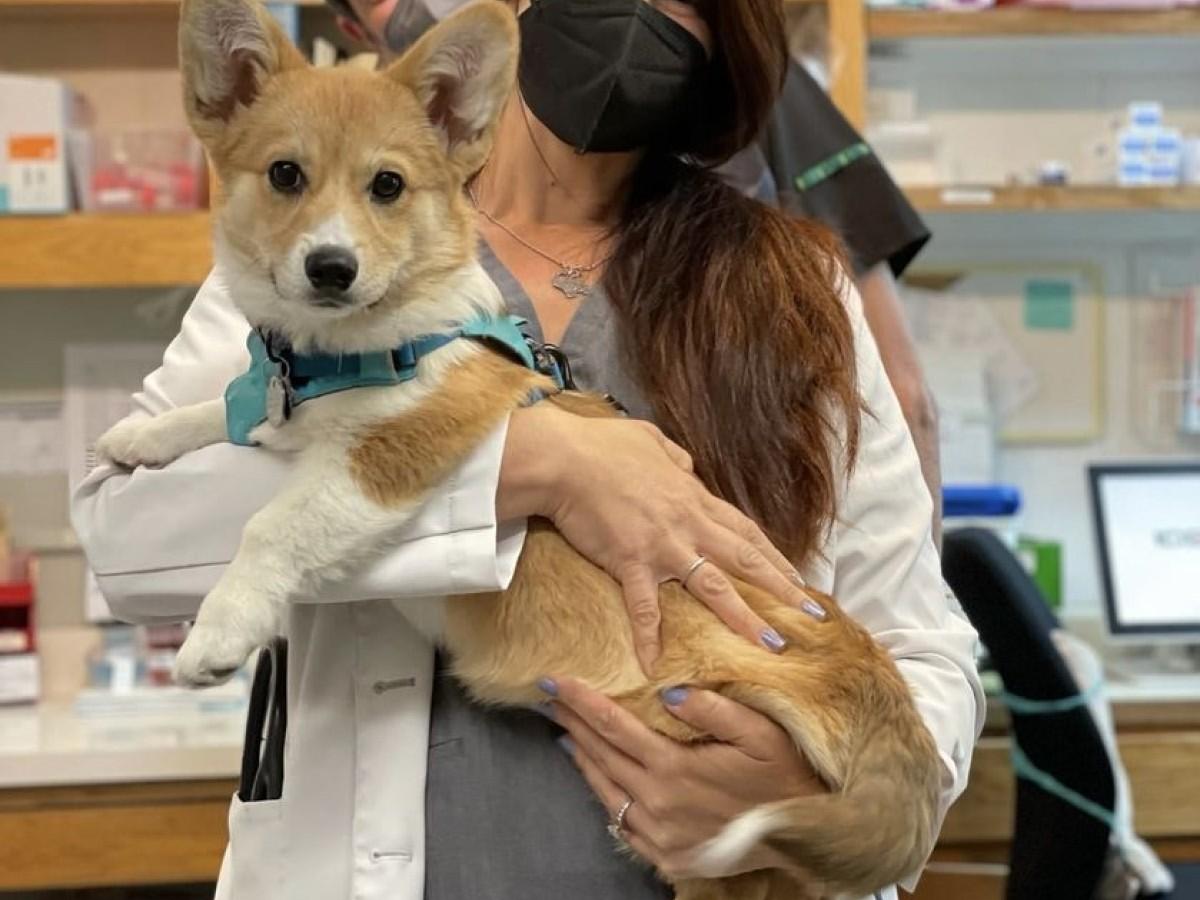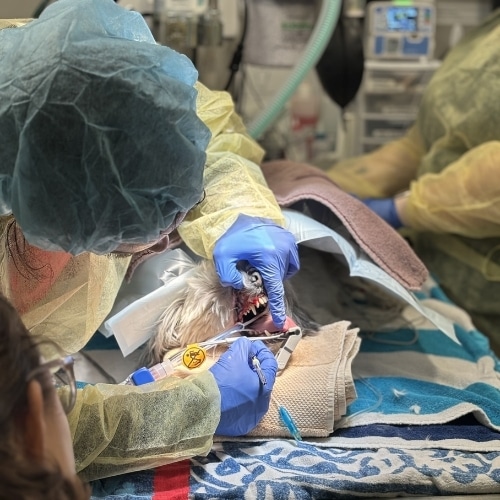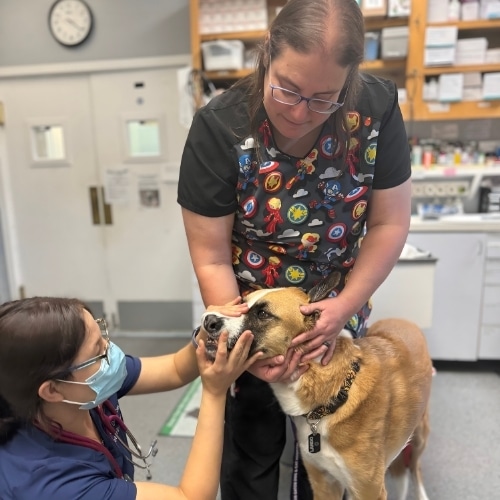
Pet Dental Care
Your pet’s oral health is deeply connected to their overall well-being. At Los Gatos Dog & Cat Hospital, we provide comprehensive veterinary dentistry and oral surgery services to treat, manage, and prevent dental disease with a fully equipped pet dental clinic ready for anything from routine cleanings to advanced extractions.
What Is Pet Dental Care?
Pet dental care involves regular monitoring, cleaning, and treatment of your pet’s teeth and gums.
A complete dental exam and dental cleaning under anesthesia allows us to:
- Remove tartar and plaque buildup
- Examine the teeth, roots, and jaw below the gumline
- Detect infections, fractures, or loose teeth
- Perform extractions or oral surgery as needed
We use digital dental X-rays, ultrasonic scalers, and advanced surgical tools to ensure precise, effective care.
Why Dental Care Matters for Pets
Dental disease is one of the most common—and overlooked—health issues in cats and dogs. It can lead to:
- Bad breath and tooth loss
- Painful chewing or appetite changes
- Gum infections that spread to the heart, liver, or kidneys
Routine dental care not only prevents discomfort but also improves long-term health and quality of life.

Benefits of Preventative Dental Services:
- Early detection of oral disease
- Fresher breath and improved comfort
- Fewer extractions and costly procedures
- Better appetite and behavior
- Healthier internal organs through infection control
Our team will recommend a schedule for cleanings and at-home care based on your pet’s age, breed, and dental history.

What to Expect at Our Pet Dental Clinic
All dental procedures are performed under anesthesia to allow for thorough cleaning and pain-free treatment. We:
- Conduct pre-anesthetic bloodwork
- Use continuous monitoring throughout the procedure
- Provide full post-op care instructions
We’ll walk you through every step to ensure your pet’s safety and comfort.
Choose Skilled Dental Care in Los Gatos, CA
As a long-standing AAHA-accredited hospital, we hold ourselves to the highest standards in veterinary dentistry and oral surgery. You can count on our compassionate team to keep your pet’s teeth—and total health—in excellent shape.
Schedule Pet Dental Care in Los Gatos, CA
Don’t wait until dental problems arise. Give your pet the comfort and confidence that comes with a healthy mouth. Schedule your visit to Los Gatos Dog & Cat Hospital for a dental examination or cleaning now.
